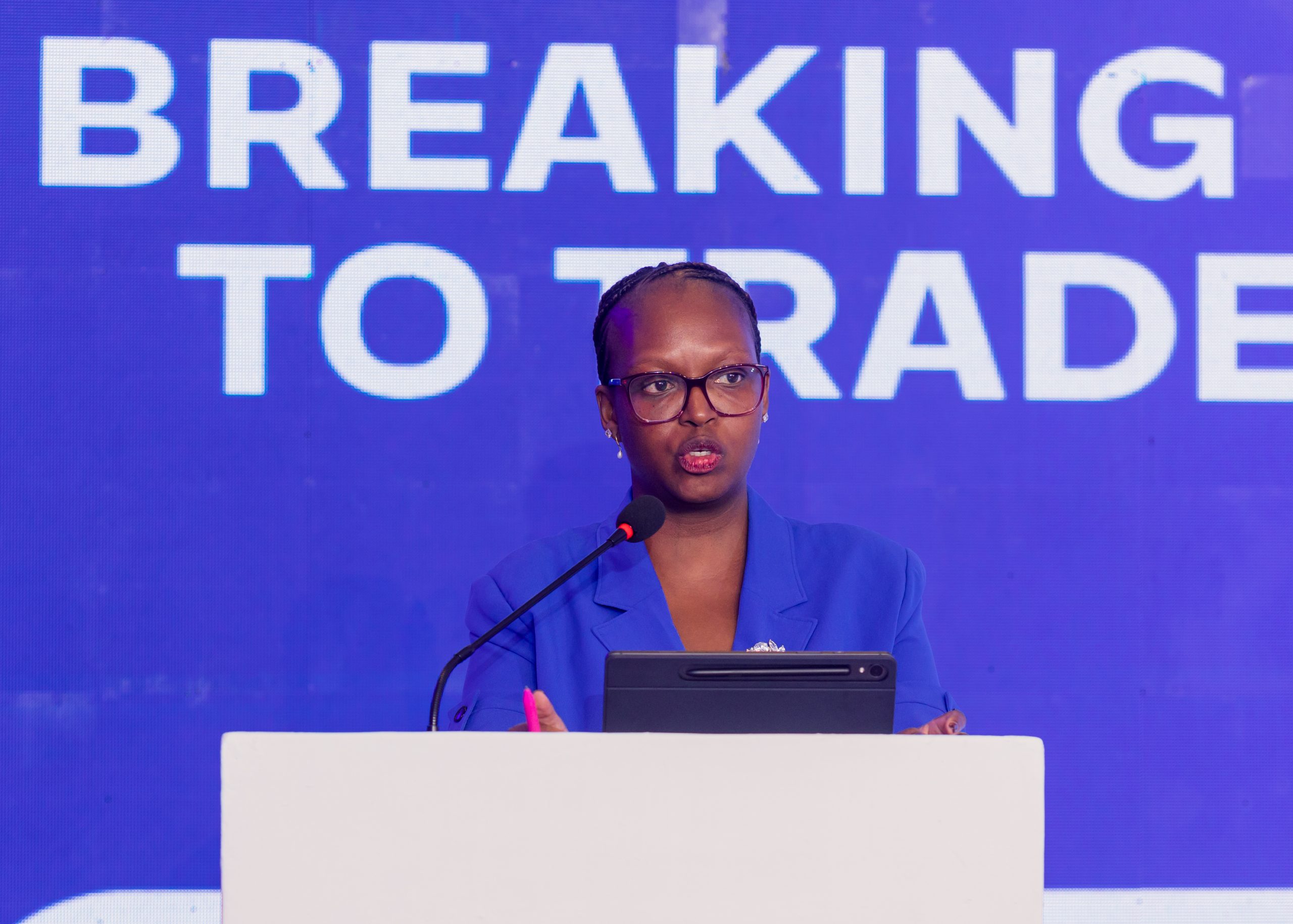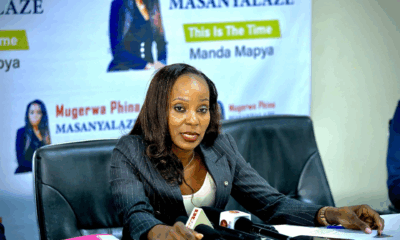Business
dfcu Bank’s Kiconco Urges Inclusive Trade Reforms to Unlock Africa’s $3.4 Trillion Market
The 4th High-Level Entrepreneurial Conference hosted by the Global Influence Club (GIC) took place today at the Sheraton Kampala Hotel under the theme “Global Shifts, Opportunities, the Future of Working in Uganda and International Markets.” The event convened more than 150 influential stakeholders from government, banking, academia, and enterprise to address one central goal: breaking the persistent barriers to trade across Africa.
At the heart of the dialogue was a compelling keynote address by Annette Kiconco, the Chief Retail Banking Officer at dfcu Bank, who delivered a rousing call for strategic and inclusive reforms to unlock Africa’s vast trade potential under the African Continental Free Trade Area (AfCFTA). “This is not merely a conversation about trade,” Kiconco asserted. “It reflects our collective ambition—to transform trade from a challenge into a catalyst for sustainable development, inclusive growth, and continental prosperity.”
With AfCFTA now fully operational, Kiconco emphasized the scale of opportunity presented by Africa’s 1.4 billion people and a combined GDP of $3.4 trillion, highlighting the need to deliberately include women, youth, and informal businesses—often marginalized despite forming the backbone of African commerce.
Citing Uganda’s current trade figures, she pointed out that the country’s exports hit $8.16 billion in 2024 against $12.7 billion in imports, leading to a trade deficit exceeding $4.6 billion. Nonetheless, she noted promising signs in 2025, including a first-quarter export gain of $2.6 billion and a remarkable 72.1% surge in manufactured goods exports in April alone, signaling growing value addition and industrial resilience.
Yet, Kiconco warned that data alone cannot drive transformation. “Behind every number is a farmer, a trader, a logistics operator, all facing systemic challenges,” she said. These include high logistics costs, fragmented regulations, inadequate access to affordable trade finance, and exclusion of informal and women-led businesses from global value chains.
To counter these challenges, Kiconco unveiled dfcu Bank’s three-pronged strategy. The first is broadening access to finance through tailored digital solutions and trade finance instruments. The second is the Bank’s acclaimed Women in Business Program, which has supported over 70,000 women with not only credit but also mentorship, networking, and market access. “Empowering women is not just moral,” she added, “it’s economically strategic.”
The third pillar is a sector-led growth approach aligned with Uganda’s priority areas including agriculture, manufacturing, infrastructure, ICT, and education. Through multi-stakeholder partnerships with government, academia, and development financiers, dfcu Bank aims to strengthen trade ecosystems across Uganda and the wider Great Lakes Region.
Looking ahead, Kiconco identified five transformative frontiers for Africa’s trade: digital innovation driven by youth; green, sustainable logistics and agriculture; infrastructure modernization to underpin AfCFTA; stronger engagement with Africa’s $50 billion diaspora economy; and scaling the Made-in-Africa brand to export value-added products, not raw materials.
“Trade must be transformational, not transactional,” she emphasized. “We must uplift communities, deepen industrial capacity, and build resilience. And to be truly transformational, it must be inclusive.”
The conference, founded by Rt Hon. Baroness Sandip Verma of the UK House of Lords, continues to grow in global influence. Since its launch in 2022—officiated by Uganda’s First Lady Janet Museveni—the GIC has held sessions in the UK, India, and Uganda, with 2025 expansions planned for Korea, Malaysia, and Nigeria.
Today’s gathering in Kampala reaffirmed a shared vision: to empower women-led enterprises, harness global shifts, and turn trade into Africa’s legacy. “Let’s not leave here with good intentions,” Kiconco concluded. “Let us leave with shared responsibility. The future of African trade is being written today—by the choices we make together.”.
Comments




























